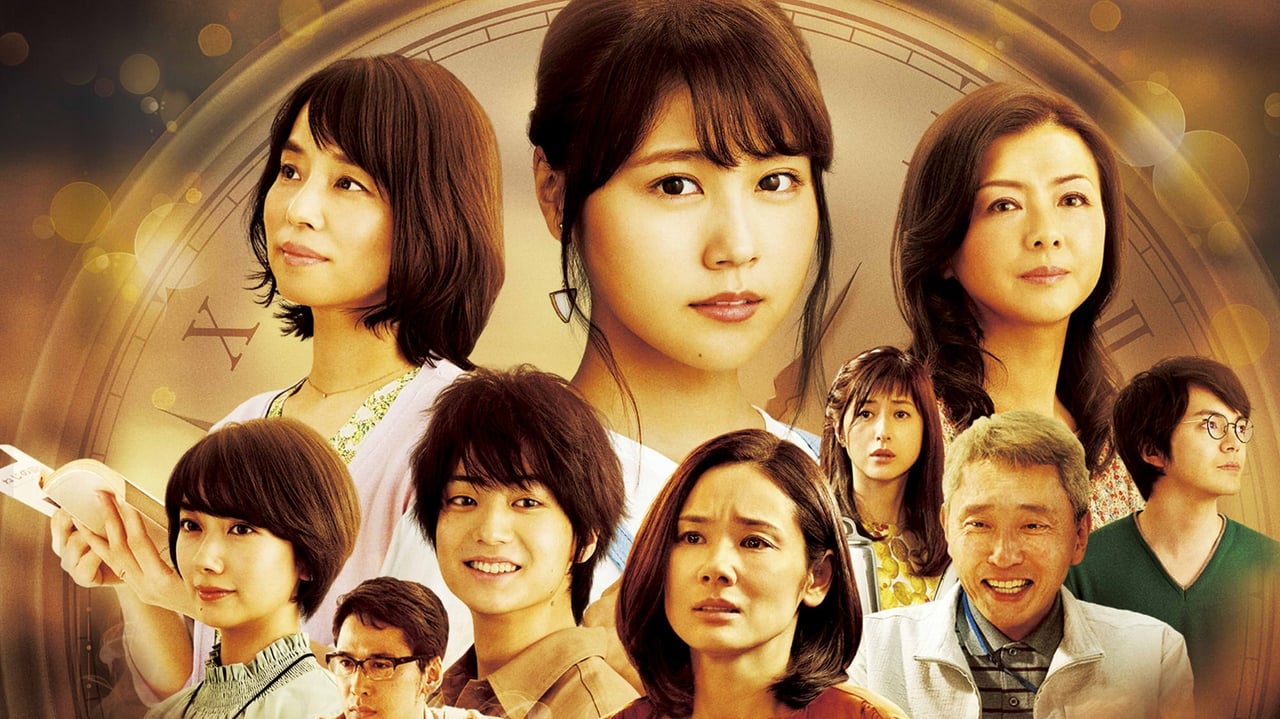
Cafe Funiculi Funicula

Kazu works at "Funiculi Funicula" cafe. There is a mysterious rumour that if a customer takes a specific seat at the cafe, that customer can travel back to a time of their choice.


Kazu works at "Funiculi Funicula" cafe. There is a mysterious rumour that if a customer takes a specific seat at the cafe, that customer can travel back to a time of their choice.
While bearing the title of Kawaguchi‘s first novel in its original Japanese, Cafe Funiculi Funicula is a cinematic adaptation that skillfully blends elements from Before the Coffee Gets Cold and Tales from the Café, modifying the narratives to suit the unique demands of the medium.
The film’s focus shifts towards Kazu (played by Kasumi Arimura), the enigmatic waitress who not only possesses the power to send patrons on time-bending journeys but also harbors a deeply personal connection to the café’s resident ghost.
Her character is intriguingly merged with Kei, Nagare‘s (Motoki Fukami) wife from the first novel, who travels to the future to meet her daughter.
Despite these significant alterations, the film’s narrative remains compelling and surprisingly believable.
Departing from the novel’s sole reliance on the café setting, the film expands its scope, exploring the emotional journeys of the characters beyond the confines of the café itself. This broader perspective enhances the viewer’s understanding of the profound implications of time travel and its impact on human lives.
The visual effects employed to depict time travel, while initially jarring, gradually becomes more captivating, culminating in a mesmerizing portrayal of the passage between temporal dimensions.
However, the film’s lack of a distinctive soundtrack is a noticeable omission, potentially diminishing the overall emotional impact.
The acting performances are uniformly strong, with a distinctly Japanese sensibility. The appearance of familiar faces like Haru and Kento Hayashi in supporting roles adds a delightful touch of recognition.
Overall, Cafe Funiculi Funicula emerges as a cinematic gem, characteristic of Japanese cinema’s ability to convey profound messages with subtlety and grace. It is a thought-provoking and emotionally resonant film that invites viewers to contemplate the enduring power of human connection and the enduring search for happiness.
While bearing the title of Kawaguchi‘s first novel in its original Japanese, Cafe Funiculi Funicula is a cinematic adaptation that skillfully blends elements from Before the Coffee Gets Cold and Tales from the Café, modifying the narratives to suit the unique demands of the medium.
The film’s focus shifts towards Kazu (played by Kasumi Arimura), the enigmatic waitress who not only possesses the power to send patrons on time-bending journeys but also harbors a deeply personal connection to the café’s resident ghost.
Her character is intriguingly merged with Kei, Nagare‘s (Motoki Fukami) wife from the first novel, who travels to the future to meet her daughter.
Despite these significant alterations, the film’s narrative remains compelling and surprisingly believable.
Departing from the novel’s sole reliance on the café setting, the film expands its scope, exploring the emotional journeys of the characters beyond the confines of the café itself. This broader perspective enhances the viewer’s understanding of the profound implications of time travel and its impact on human lives.
The visual effects employed to depict time travel, while initially jarring, gradually becomes more captivating, culminating in a mesmerizing portrayal of the passage between temporal dimensions.
However, the film’s lack of a distinctive soundtrack is a noticeable omission, potentially diminishing the overall emotional impact.
The acting performances are uniformly strong, with a distinctly Japanese sensibility. The appearance of familiar faces like Haru and Kento Hayashi in supporting roles adds a delightful touch of recognition.
Overall, Cafe Funiculi Funicula emerges as a cinematic gem, characteristic of Japanese cinema’s ability to convey profound messages with subtlety and grace. It is a thought-provoking and emotionally resonant film that invites viewers to contemplate the enduring power of human connection and the enduring search for happiness.